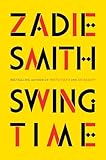Here are six notable books of poetry publishing this month.
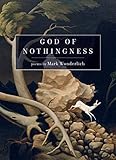 God of Nothingness by Mark Wunderlich
God of Nothingness by Mark Wunderlich
The book’s first poem, a jaunty etymological journey through the poet’s last name, establishes a folkloric tone to the collection: imagine a trickster who has come from the cold forest one evening to knock on a cabin door. There’s a darkness here foretold by the book’s title, which calls to mind complexity: a God of nothingness, no-thing, absence as an eerie poetic presence. In “Haunted House,” the narrator moves into a home and “gutted it to the bones.” He tore up the floor “to uncover a floor, // sanded tulip poplar to a sheen.” Perhaps that was what stirred the house to “wake,” and its stories came to him: “Now I live here alone with the spirits I cannot see.” Rilke and Roethke haunt this wonderfully melancholic book: “I wanted more—not of summer, // with its swampy air and the nightmare / amphibian whir, but of autumn // with its metallic skies swept with clouds, of the promise of something about to end, // but not yet taken away.” Incantatory, Wunderlich’s poems are perfect for journeying elsewhere—as with “Proposition”: “That the smell of cows drifting in the open window is, indeed, that of a living beast. // That I too am a living beast.” Later: “That we were born suffering, but that we are not meant to suffer.” But what of the title? Where is the no-thing? Everywhere, Wunderlich suggests: “I watch at the edge of the grove, the bees flung out / into the sun. My only life is being spent—today— // the longest day of the year, here on a hill looking out / for a moment and feeling my body unearthed.” Take this book to a silent place, and let yourself go.
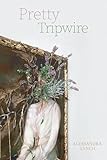 Pretty Tripwire by Alessandra Lynch
Pretty Tripwire by Alessandra Lynch
Lynch can quickly and effectively render uncomfortable moments. In the long first poem, the narrator considers her fractured childhood, how “Not eating was a sign / of grief / in our house.” Her mother “stunned / thin as a rake draped / with her wedding veil, bruised eye / staring out.” Meanwhile, “mouth / stuffed with a fist / lest someone hear,” she recoils in her bedroom. Soon, checked into the hospital with a “yellow wrist ID for the children’s ward,” she sees that “lovers sailed past, / arm-in-arm, ample with flowers.” Lynch’s usage of ample here reveals her instinct for juxtaposition: the world opening beyond a moment of suffering. This sense returns in “Hymnal”: “Book in my hands—thin / & sleek” and “Whelk of syllable, / silk against my cheek, the book is / ballast.” Again, in the poem “Worry”: a hummingbird’s “tiny body throbbed with sound, fast-heaving, clacking / music.” And yet: was the bird “restless prisoner of air or pioneer?” Can any of us ever know?
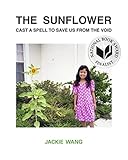 The Sunflower Cast A Spell to Save Us From the Void by Jackie Wang
The Sunflower Cast A Spell to Save Us From the Void by Jackie Wang
Wang’s debut collection, formally diverse and marked with a sardonic tinge, suggests a porous border between the dream and waking worlds. “Who is the woman lurking in the woods?” she wonders in an early poem, recognizing that she is a “fellow traveler,” for “She is lost and I am lost.” Wang drifts between the real and unreal, documenting an almost Yeatsian interest in that third space, a poetic place between, where the absurd is necessary. She imbues her lines with this hypnotic sense: “In the rain, in her head, an elegy for the not-quite-dead.” Among sentences from Cixous, Nietzsche, Benjamin, and others, Wang outlines a poetics perhaps best captured by her reference to Anne Carson, and her translation of Sappho when “brackets appear in the poems where the papyrus has disintegrated, as papyrus is the structure of dreams. Never intact.”
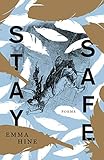 Stay Safe by Emma Hine
Stay Safe by Emma Hine
One particular poem that stayed with me from this nice debut was “A Circling,” an understated tale of a man who was attacked by a shark, a “bite of thigh missing, skin like a spider tried / to stop the hole with web.” The narrator can barely look at her great-uncle after seeing his wound, but she becomes so attached to his presence: “By the time he’d died, I’d memorized his shape in the recliner, / the pattern of beer bottles across his floor. Mapping / his aftermath like a frontier.” I’ve been thinking about that dissonance, that looking but not looking, and it is an apt way to consider Hine’s method: a catalogue of bodies spent and passed, of sisters, of those who “want to say that together / we could be two words / the sort that hold hands / but still keep their original meanings.” Hine often returns to shared scars, body markings; in “Still,” the narrator thinks about how her great-grandmother, while nursing her grandmother, saw a foot-long centipede “falling toward her / from a branch, its back-plates twisting.” She moves away the baby, and the centipede, “segmented and heavy, / landed on her exposed breast.” It left a scar that never vanished; Hine’s collection captures that feeling.
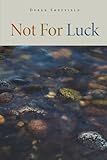 Not for Luck by Derek Sheffield
Not for Luck by Derek Sheffield
Sheffield is very adept at finely crafting scenes as the spaces for poems (they expand beyond the time and place of these scenes, but they feel syntactically rooted and united, one by one in the book). An early poem in the collection, “The Scientists Gather at Mount St. Helens,” opens with a question—“What does it mean?”—asked by one of the scientists amid “the wind / of a gray plain” while they look at the “crater’s living steam.” The patchwork of “shrubby trees” among “the clean white spikes / of the countless dead” stand behind them. The poem’s structure suggests a theme and method for Sheffield: what does it mean to be within a world that exists beyond us, longer than us? Melancholy pieces live among heartfelt moments, as in “Daughter and Father in Winter”: “we clap the stuttering // snaps of the kindling / coming to life in the stove.” Later: “More river than daughter / her arms fill with treasures” of rocks, “her pockets // already clack-and-bristle.” Poetry to make you long for moments in the wild.
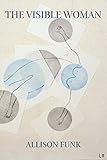 The Visible Woman by Allison Funk
The Visible Woman by Allison Funk
Funk’s newest collection begins with a statement against vanishing; the narrator summons a woman “rib by rib, scapula, tibia,” but “she turns and speeds away / like someone fleeing fire.” The poem establishes an immediate and lasting paradox of body and spirit, request and rejection. In “The Visible Woman,” she affirms: “Mine, too, is a story / of how we disappear” as she considers her childhood assembly kit for an anatomical model of a woman. It was a woman fully revealed, and she now longs “to go back to when I was ten, / to start all over with the bones, / the brain, the heart in two parts / I’m trying to glue together.” Funk often returns to the body as a source of wonder, fear, and possibility. The narrator’s father in “Blood” goes pale at the sight of any of the titular fluid, “so I learned / to hide my wounds—scraped knees, / little playground injuries, even gashes / that needed stitching.” In “Vespers,” she partially laments: “This late I’m still not in the body / I’m trying to occupy.” This sense comes back in “A Nun’s Prayer,” a revision from Psalm 22: “My God my God,” she calls, “I am poured out // bones heart breast // they stare and gloat over me.” Women are forever revealed in these poems.









